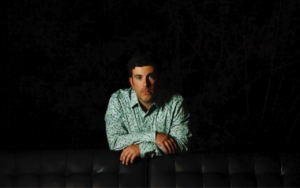 Whitey, the popular electro-rock artist whose music has been featured in Breaking Bad, is now making headlines for his impassioned (read: wicked pissed off!) response to a music licensing request from Betty, a UK-based TV production company responsible for a number of successful “reality” programs.
Whitey, the popular electro-rock artist whose music has been featured in Breaking Bad, is now making headlines for his impassioned (read: wicked pissed off!) response to a music licensing request from Betty, a UK-based TV production company responsible for a number of successful “reality” programs.
Apparently in the licensing request email, the Betty music supervisor claimed to have no budget for music (though they’ve since suggested that it was a misunderstanding and that payment would be made — a claim Whitey refutes).
Here’s how Whitey responded via email:
I am sick to death of your hollow schtick, of the inevitable line ‘unfortunately there’s no budget for music’, as if some fixed law of the universe handed you down a sad but immutable financial verdict preventing you from budgeting to pay for music. Your company set out the budget. So you have chosen to allocate no money for music. I get begging letters like this every week – from a booming, affluent global media industry.
Why is this? Let’s look at who we both are.
I am a professional musician, who lives from his music. It took me half a lifetime to learn the skills, years to claw my way up the structure, to the point where a stranger like you will write to me. This music is my hard-earned property. I’ve licensed music to some of the biggest shows, brands, games and TV production companies on earth; from Breaking Bad to The Sopranos, from Coca-Cola to Visa, HBO to Rockstar Games.
Ask yourself – would you approach a creative or a director with a resume like that, and in one flippant sentence ask them to work for nothing? Of course not. Because your industry has a precedent of paying these people, of valuing their work.
Or would you walk into someone’s home, eat from their bowl, and walk out smiling, saying, “So sorry, I’ve no budget for food”? Of course you would not. Because, culturally, we classify that as theft.
Yet the culturally ingrained disdain for the musician that riddles your profession leads you to fleece the music angle whenever possible. You will without question pay everyone connected to a shoot – from the caterer to the grip to the extra – even the cleaner who mopped your set and scrubbed the toilets after the shoot will get paid. The musician? Give him nothing.
Now let’s look at you. A quick glance at your website reveals a variety of well-known, internationally syndicated reality programmes. You are a successful, financially solvent and globally recognised company with a string of hit shows. Working on multiple series in close co-operation with Channel 4, from a west London office, with a string of awards under your belt. You have real money; to pretend otherwise is an insult.
Yet you send me this shabby request – give me your property for free. Just give us what you own, we want it.
The answer is a resounding and permanent NO.
I will now post this on my sites, forward this to several key online music sources and blogs, encourage people to reblog this. I want to see a public discussion begin about this kind of industry abuse of musicians … this was one email too far for me. Enough. I’m sick of you.
— NJ White
What do you think of this response? Does the entertainment industry, and society in general, have a disdain or disregard for musicians? Let us know what you think in the comments section below.
Curious which royalties Whitey should be paid for the usage of his music in a TV show? Download our FREE guide to music publishing:
[hana-code-insert name=’publishing-guide-make-money’ /]
